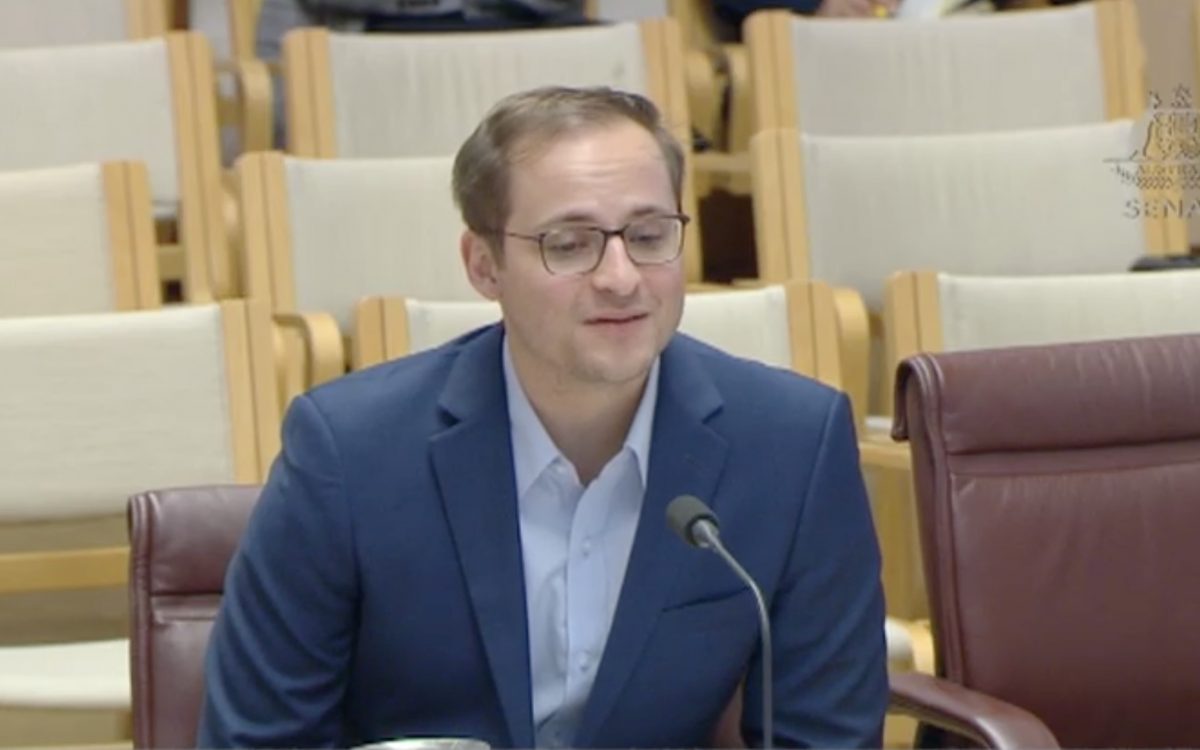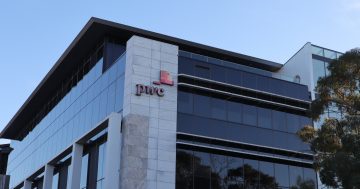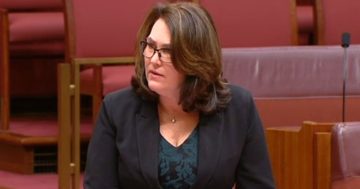
Bill Browne from the Australia Institute giving evidence to Senate inquiry. Image: Screenshot.
Consultancy firms that breach trust should be banned from working in the public service, and senior public servants should not be allowed to leave the APS to go straight to employment as consultants, a parliamentary committee hearing has been told.
The Senate Finance and Public Administration References Committee scrutinising integrity in consulting services heard evidence from a number of interested parties and individuals on Tuesday (2 May).
Much of the evidence offered to the inquiry centred on big consultancy firms that don’t want to play by the rules.
Former Australian Public Service commissioner Andrew Podger referred to some issues raised in his recent report to the Royal Commission into the Robodebt Scheme in which he described a damaged culture in the APS.
Professor Podger raised the issue of the challenges the APS faces in building its own knowledge base when external consultants are used on a wholesale basis.
But it was the Australia Institute think tank that pressed the hardest on the need to keep external consultants and contractors in line.
Consulting firms who leak confidential information and breach public trust should be barred from winning government contracts, the institute’s democracy and accountability director Bill Browne insisted.
“Consulting firms charge through the roof for advice that is often simplistic, flawed or self-interested – or has been specifically commissioned to further the government’s preconceived agenda,” he said.
“Consultants seem to have no moral qualms about taking public money to deliver advice that is against the public interest.
“At their worst, consulting firms have leaked confidential government information to drum up business and potentially help their multinational clients avoid paying millions of dollars in tax.
“PricewaterhouseCoopers has abused the public’s trust by leaking government tax plans, and a proportionate response would be a ban on PwC receiving government contracts or confidential information until it has earned back that trust.
“At the Robodebt Royal Commission, PwC described how they buried a report critical of government policy – despite it being part of work they were paid almost a million dollars for. There have to be consequences for the flagrant waste of money and abuse of trust that consulting firms have been at the heart of.
“Cuts to spending on consultancies and guidelines for when they should be used are one pillar; sanctions for consultancies that have ripped off or misled the public must be the other.”
A former PwC partner was also recently banned as a tax agent for sharing confidential Treasury information with colleagues and, by extension, clients of his own firm.
The unethical behaviour had sparked federal government threats to exclude PwC and other big consultancies from future confidential briefings.
It led to the parliamentary inquiry and sparked calls for a review of all the Big Four accountancy firms’ contract work for the APS.
In Tuesday’s committee hearing, Mr Browne said when consultants are contracted to do work that public servants could do, it stops the public service from developing skills and knowledge in-house.
“If the public service lacks the skills and knowledge to do something, it would also lack the skills and knowledge to write an effective tender for those services,” he said.
“Consultants are expensive, routinely charging the taxpayer more for junior staff than Australia pays its prime minister.
“Australia spends a billion dollars or more a year on consultancies, money which could hire thousands of public servants.”
But committee chair, Liberal senator Richard Colbeck challenged Mr Browne on the figures he was using, saying the institute was providing the top end of consultancy costs while not doing the same with the public service salaries and expenses – or even providing the true cost of what it takes to run the Prime Minister’s office.
“I want to compare apples with apples,” Senator Colbeck said.
“Don’t do what you are accusing others of doing. It devalues your work.”
Mr Browne denied that was how the institute had framed its costings, noting that there were substantial on-costs to consultants that were not included.
Community and Public Sector Union assistant national secretary Michael Tull said there was extensive evidence of the negative impact that replacing public servant numbers with external consultants has had on capability, integrity and service delivery.



















